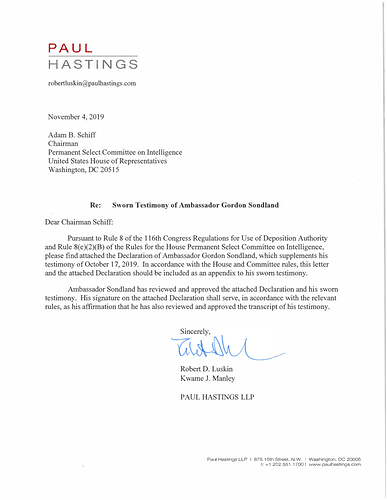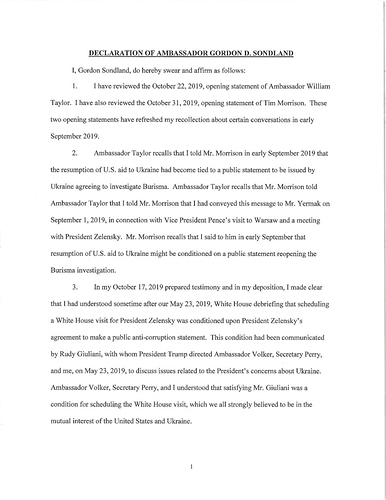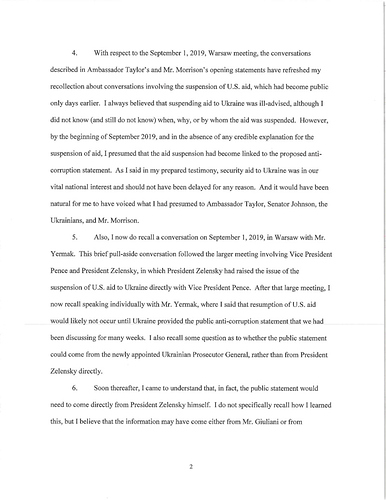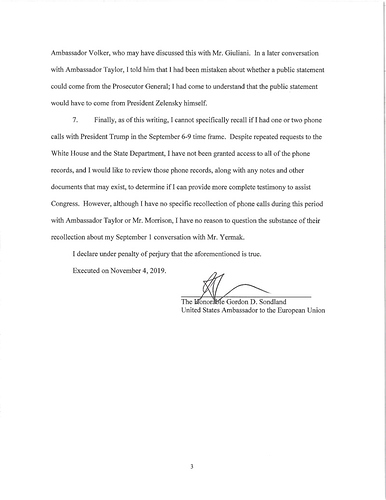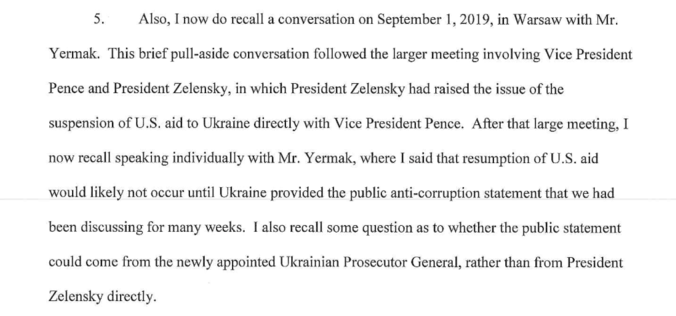New DOJ memo says executive branch witnesses must be allowed to bring lawyers to testimony
The Justice Department said attempts by impeachment investigatorsto compel testimony from executive branch witnesses about President Donald Trump’s dealings with Ukraine are “legally invalid” unless they allow for the witnesses to bring a government lawyer.
The guidance, from the DOJ’s Office of Legal Counsel, amounts to a new legal reasoning that the White House and other agencies can use to stymie House depositions after Democrats curtailed the previous legal argument that the House wasn’t in a formal impeachment inquiry with a vote last week. The memo is certain to anger Democrats as it furthers a strategy of non-cooperation from the White House in the inquiry, and once again puts the Justice Department in the position of blocking the President from further scrutiny.
Impeachment investigators had so far benefited from several depositions from current and former national security officials about the Ukraine saga, but in recent days, a number of current and former government witnesses, including former national security adviser John Bolton and a top national security aide to Vice President Mike Pence, have all skipped out on scheduled depositions.
In the memo, OLC lawyers write that the President, who has not been asked or subpoenaed to testify, must be allowed to have a representative present in depositions to be able to protect privileged information from disclosure. The House Intelligence Committee, which is leading the ongoing investigation, has so far only allowed witnesses to appear for depositions with personal counsel.
The five-page memo appears limited in scope but potentially sets up a future fight over the impeachment investigators’ ability to pierce the administration’s shield of executive privilege, which could block witnesses from providing valuable information about Trump’s direct involvement in the case.
OLC attorneys cite a DC Circuit court opinion comparing an impeachment inquiry with a grand jury investigation in a criminal probe, setting up the need to meet a high threshold to overcome the protections of the privilege.
The administration’s new legal memo is untested in court. Witnesses are not permitted to bring lawyers into criminal grand juries, and federal courts have generally not allowed administration blocking attempts to stand in the way of criminal investigators or of Congress’ needs during impeachment proceedings. As recently as last month, a federal judge told the administration it couldn’t block the House’s pursuit of confidential grand jury information sought for the impeachment proceedings, for example.
